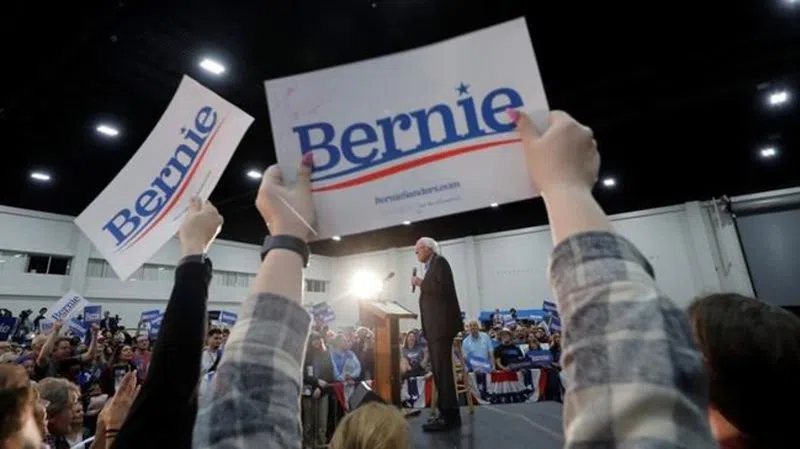
Sanders may be divisive, but supporters say progressive ideas have staying power
MYRTLE BEACH, S.C. — The “Volunteer” badge pinned to Sheila Archer’s Bernie Sanders T-shirt is a bit of an understatement.
Archer, from Allentown, Pa., cashed in a week of her vacation time and spent hundreds of dollars of her own money — the plane ticket alone was $400 — to help organize events, make phone calls and staff rallies such as the one Wednesday in the South Carolina resort community of Myrtle Beach.
“I like his honesty and his integrity; I like that he is for the working people, as opposed to himself, like a lot of our other politicians,” Archer said as she doled out greetings and “Bernie” placards to some of the more than 2,000 people who showed up in the middle of a rainy weekday at the Myrtle Beach Convention Center.
Those other politicians “are more concerned about what’s in it for them, and he’s more concerned about what’s in it for us.”
